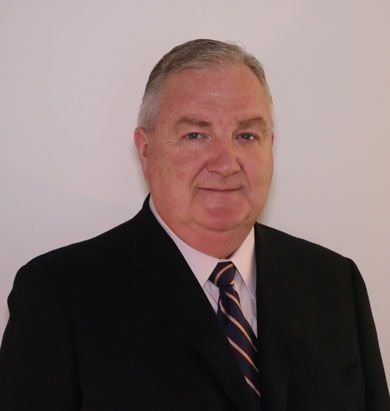 An accident with a commercial truck is very different from a collision between two passenger cars, especially if a vehicle becomes wedged beneath the trailer. These crashes, known as underride accidents, are among the worst types of large truck accidents and can have devastating effects on drivers and passengers.
An accident with a commercial truck is very different from a collision between two passenger cars, especially if a vehicle becomes wedged beneath the trailer. These crashes, known as underride accidents, are among the worst types of large truck accidents and can have devastating effects on drivers and passengers.
Types of Truck Underride Truck Accidents
Commercial trucks and trailers are much higher from the ground than standard passenger vehicles. If a trucker slams on the brakes, the car behind doesn’t just strike the trailer – it can slide underneath, shearing the roof off or crushing the occupants. The nature of an underride collision makes it especially likely to prove fatal for passenger-vehicle occupants, even at low speeds.
There are two types of underride accidents:
- Rear collisions. These accidents happen when the vehicle collides with the back of the truck or trailer. The faster the vehicles are traveling, the less time the vehicle following the truck will have to avoid a collision.
- Side collisions. Smaller vehicles may slide under the side of a semi-truck as a trucker attempts a wide turn, backs across traffic, or drifts out of a parallel lane on the highway.
The Most Common Causes of Truck Underride Accidents
The National Highway Traffic Safety Administration (NHTSA) began instituting rear impact guards on the backs of semi-truck trailers in the late 1960s. In addition, in 2015, the Massachusetts Legislature passed a measure requiring a bar along the sides of all commercial trucks operating in the state.
Despite these trucking safety regulations, underride accidents still occur due to:
- Guard failure. Trucking companies are required to ensure that guards are placed properly and strong enough to stop a vehicle upon impact. However, some guards may buckle or detach from the force of the crash.
- Exemptions. Some vehicles are exempted from guard requirements, such as those weighing under 10,000 pounds and certain road construction trailers.
- Lack of inspections. The Federal Motor Carrier Safety Administration (FMCSA) requires rear impact guards to be examined as part of the required annual inspection for commercial motor vehicles.
- Out-of-state trucks. Side guards are only required under state law, so interstate commercial vehicles on highways may not have them installed.
- Older vehicles. Federal law requires rear impact guards on all tractor-trailers manufactured on or after January 26, 1998. Older vehicles should have been upgraded to include guards, but many have not.
In the majority of cases, there’s something the trucker or the trucking company could have done to prevent an underride crash. It’s imperative that your accident is thoroughly investigated by your legal representative to see who may be liable for your losses.
The most common causes of truck underride accidents include:
- Truck driver negligence. Truckers who speed, stop suddenly, fail to check their mirrors, or turn without signaling can place other road users at risk of a crash. Even when they are stopped at the side of the road, truck drivers should protect against underride accidents by placing safety triangles or flares at the edges of the trailer.
- Inadequate guards. Since federal and Massachusetts laws require trucks to have underride protection, truckers and their employers may be found guilty of negligence for operating trucks without proper guards. A third-party company may be at fault if the guards failed due to faulty design, manufacturing defects, or improper installation.
- Lack of truck maintenance. Underride accidents are more likely to occur during periods of poor visibility, such as driving at night or in rainy or foggy weather. Broken brake lights, missing or dirty reflectors, or lack of reflective tape marking the back and sides of the trailer can all raise the risk of a crash.
An Underride Crash Can Have Lifelong Consequences
These types of accidents often have long-lasting effects on their victims. If victims survive the crash, their injuries may prevent them from earning a living wage, living independently, or enjoying their favorite activities. Drivers and passengers who suffer overwhelming physical and financial losses from someone else’s negligence have a right to seek compensation under Massachusetts law.
Victims who suffer severe injuries can file a lawsuit to compensate them for:
- Medical bills. The aftermath of a truck accident typically requires immediate and ongoing medical care. Underride accidents can cause dangerous crush injuries, including complex bone fractures or injuries that result in dismemberment or amputation. Some victims may suffer traumatic brain injuries that need extensive surgery, physical rehabilitation, speech therapy, or permanent live-in nursing care.
- Lost wages. Many people will lose weeks or months of work as they recover from an accident, but underride accident victims may never be able to return to the workforce. Since these accidents often result in permanent disability, it’s important to secure a settlement that will cover both past and future loss of income.
- Pain and suffering. Some trauma goes far beyond physical suffering. Victims who suffer spinal cord injuries will have to cope with the knowledge that they may never walk again, while others may lose the ability to bear children or control their bodily functions. Facial scarring and disfigurement can significantly affect a person’s quality of life, causing depression or anxiety that requires professional counseling or prescription medications.
- Wrongful death. If one or more victims did not survive the accident, family members may be able to file wrongful death claims to recover the costs of their medical expenses, lost income, and funeral and burial costs. These claims also allow recovery to compensate survivors for the loss of the care and companionship of their loved ones.

 Want to Learn More? Get Your Free Copy of Massachusetts Truck Accidents: The Guide to Handling Your Commercial Truck Injury Case
Want to Learn More? Get Your Free Copy of Massachusetts Truck Accidents: The Guide to Handling Your Commercial Truck Injury Case